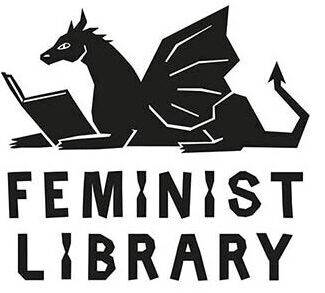Text by Lydia Ayame Hiraide
‹ Return to Text by Lydia Ayame Hiraide

“Frauen organisieren wir uns gegen Faschismus, krieg und patriarchat!”
This poster advertises a women*’s demonstration organised by the Women’s Alliance Zurich in Switzerland in 2017. In a more-than-century long tradition in Switzerland, approximately 1,500 people gathered at this all-woman demonstration, including cis, trans, and intersex women, to mark International Women’s Day. A diverse variety of women’s groups of different backgrounds rallied publicly in the city. With a militant spirit, they marked the centenary of the Russian Revolution, in which working women played a crucial role. Indeed, March 8, the day we celebrate International Women’s Day, is the date on which Russian women’s wartime strike began – a strike that would end with the Russian tsar abdicating and women being granted the right to vote.
The text at the top of this bold poster reads “We, women*, let us organise against fascism, war, and patriarchy!” – a rallying cry which rings as relevant today as ever. In their struggle against fascism, war, and patriarchy, the women of this march take a staunchly internationalist approach. Welcome speeches at the start of the advertised event were held in various languages – speaking to the power of the transnational, international struggles that working women lead. The women of the march were unambiguous about their solidarity with liberational struggles all over the world, such as those of Syrian, Spanish, Basque, Kurdish, and Turkish women. International Women’s Day lives up to its name as an internationally oriented event.
How does this women’s demonstration speak across borders? Specifically, to the UK? At the demonstration, women demonstrators were kettled by the police and were subject to misogynistic and racist insults. This speaks directly to the UK context, where women’s protests against chronic gendered violence in the country has also been met with extreme, heavy-handed policing. Despite conditions of hostility, International Women’s Day continues to be well celebrated in the UK too. In events all over the UK, year in and year out, March 8 sees sex workers and trade unionists joining together to fight for women’s workplace rights, migrant women and allies unite to demand rights for refugees and migrants, and socialist women remind us of the radical origins of International Women’s Day as the fight for liberation continues both within and across borders.
¡La lucha continúa! La lutte continue! The struggle continues!
*including trans, cis, and intersex women.
www.Frauenbuendnis-Zueri.ch


